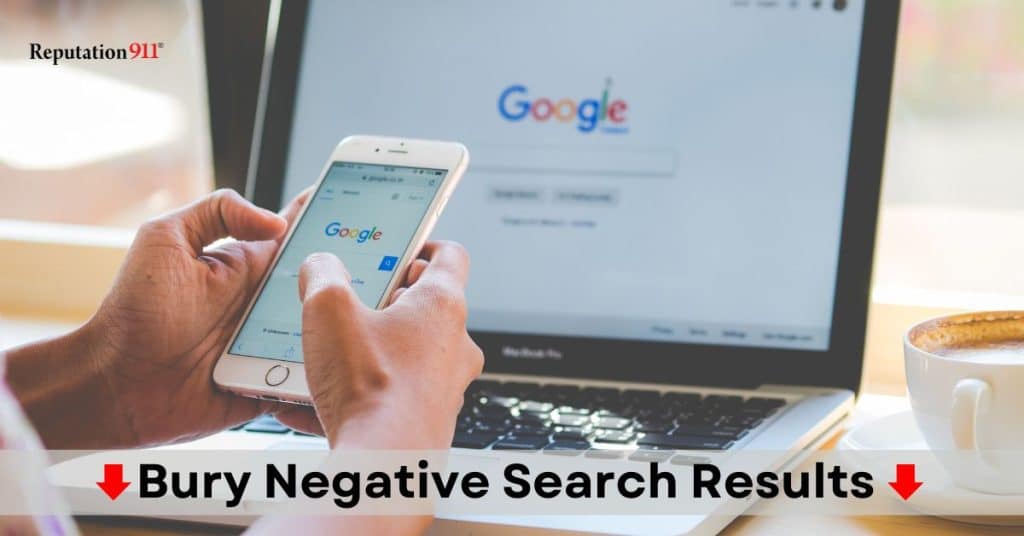
Seeing negative content about yourself or your business in search results can be overwhelming, to say the least.
Maybe it’s a bad review, an old article, defamatory remarks, or something taken out of context. It’s not just frustration – it’s personal, and it’s hurting how others see you.
The good news? You can push that content down and take back control.
This post breaks down clear, effective strategies you can use to bury negative search results and boost the positive ones that deserve to be seen.
The farther down a listing appears on a search results page, the less likely it is that someone will see it. With the right strategies, you can push search results off the first page of Google, making them practically invisible to anyone searching your name or business online.
What you’ll learn:
Burying search results (also called search engine suppression) is the process of employing SEO strategies to push unwanted content off the first page of Google search results by outranking it with positive, relevant pages. This process helps ensure that the information people see first reflects your most accurate, credible, and up-to-date story.
If you’ve already attempted to remove content from the internet without success, this approach offers a powerful alternative to address and diminish the visibility of damaging material.
This works because most people never look past the first page of Google. In fact, only 4.8% of users click on search results beyond page one (and even fewer on page 3, 4, etc).
Every spot in the rankings matters. The higher your positive content appears, the less likely anyone is to find the negative result at all.
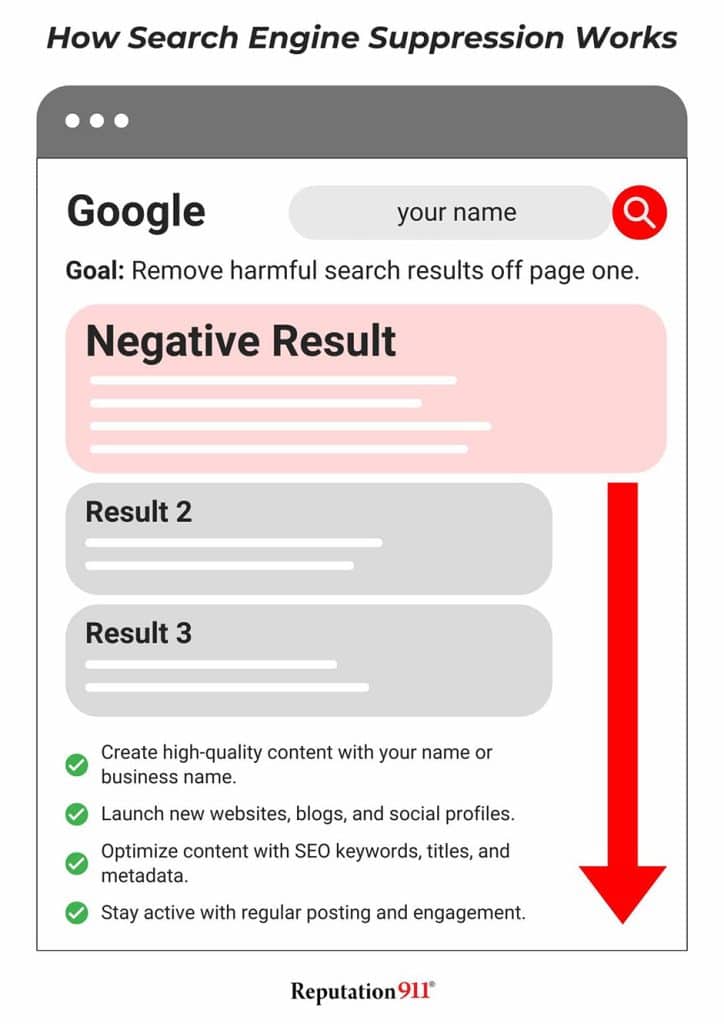
To successfully bury content online, you’ll need to understand the basics of Google’s algorithm, and the search engine rankings factors.
Google regularly updates its index and rankings based on new content and changes to the web.
Search results may change whenever new pages are crawled and indexed, or when existing content is updated.
When a negative search result for your name appears, it’s because Google considers the content relevant to what a user is searching for, and the website it’s published on is credible.
While there are over 200 factors in Google’s search algorithm, here are the main factors:
The same factors that are causing negative content to rank high in Google can be used to create positive content about yourself, pushing down the negative results!
Over the years, Google has evolved to show more than just plain text links It shows a mix of features that can include negative mentions – making it even more important to know what you’re up against.
Here are the most common types of results where negative content might appear:
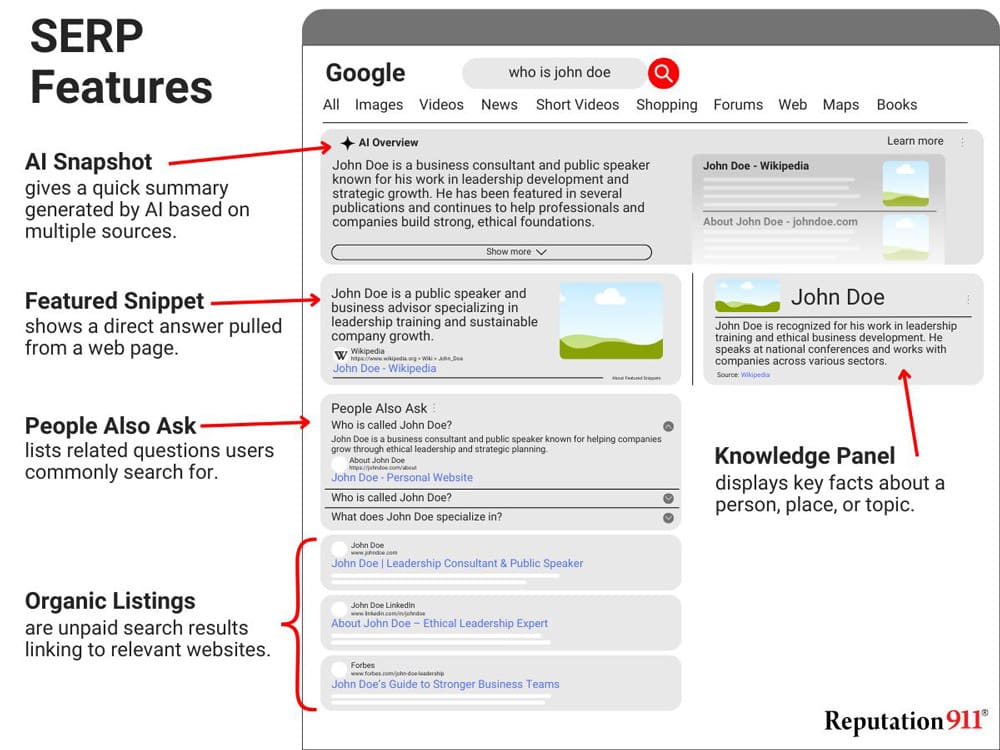
Scroll to see all Google SERP features:
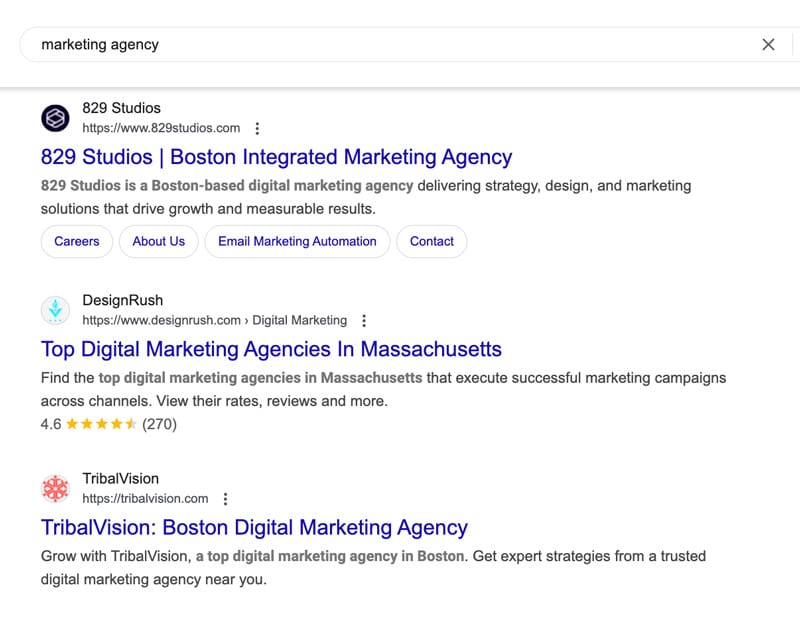
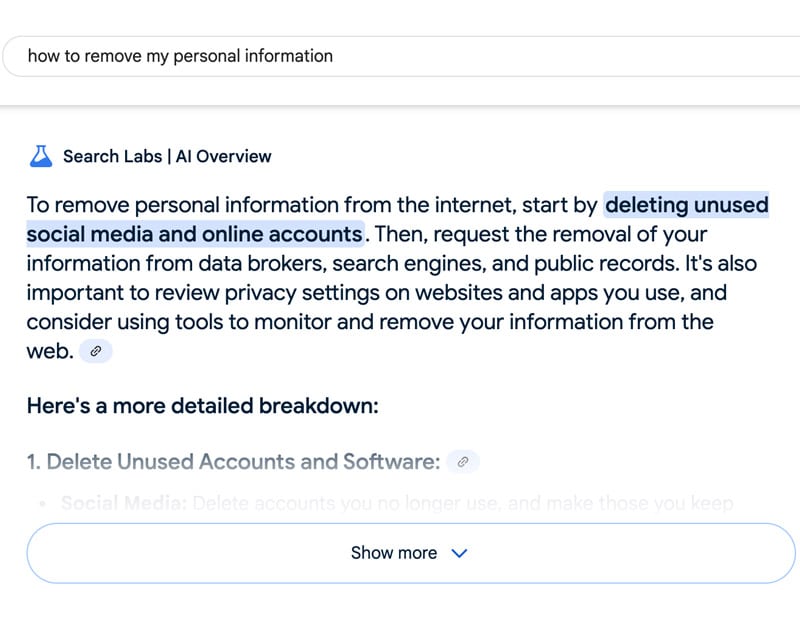
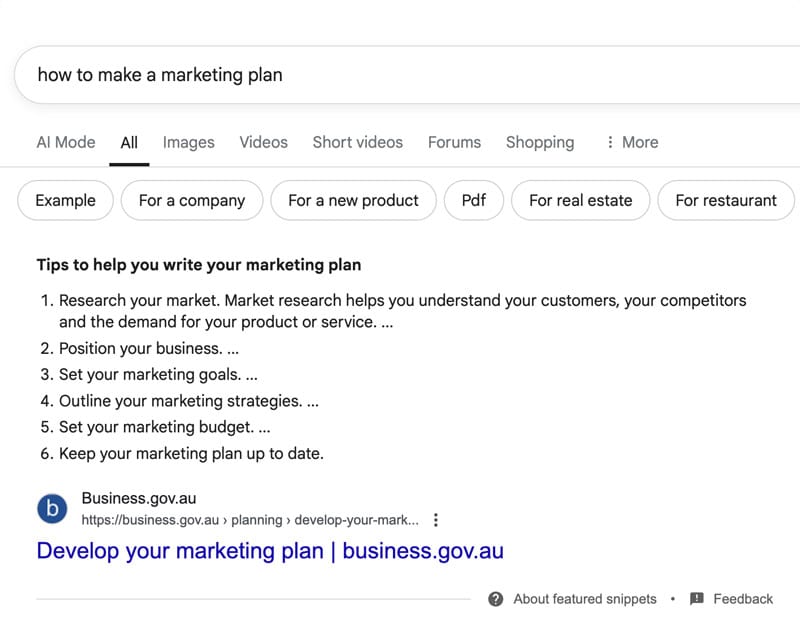
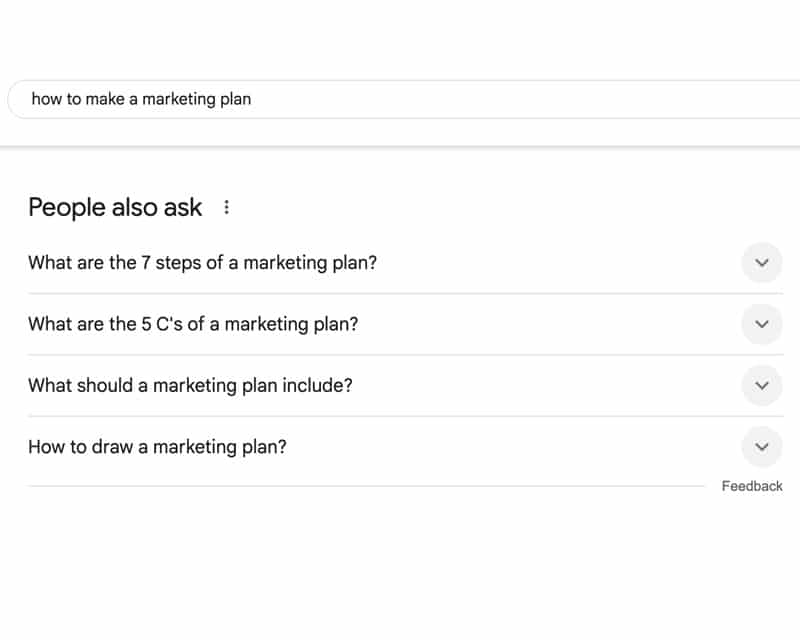
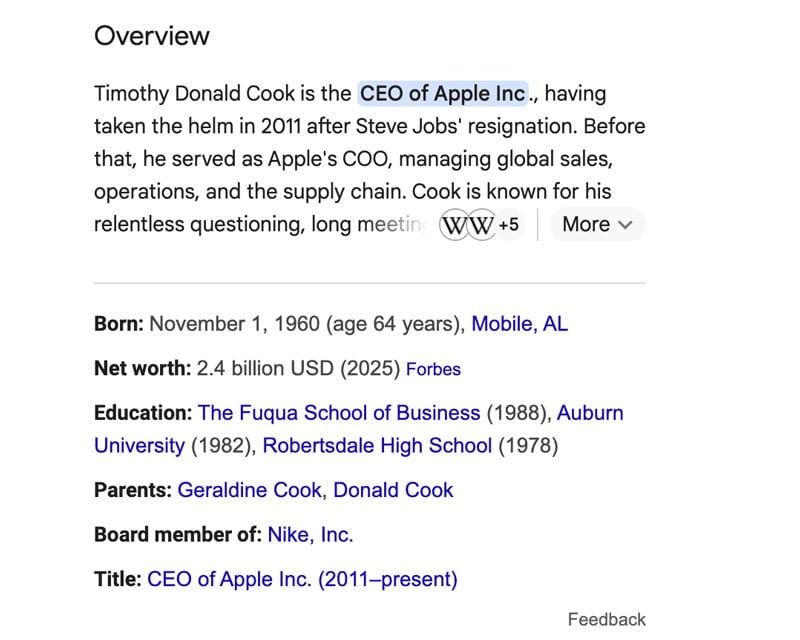
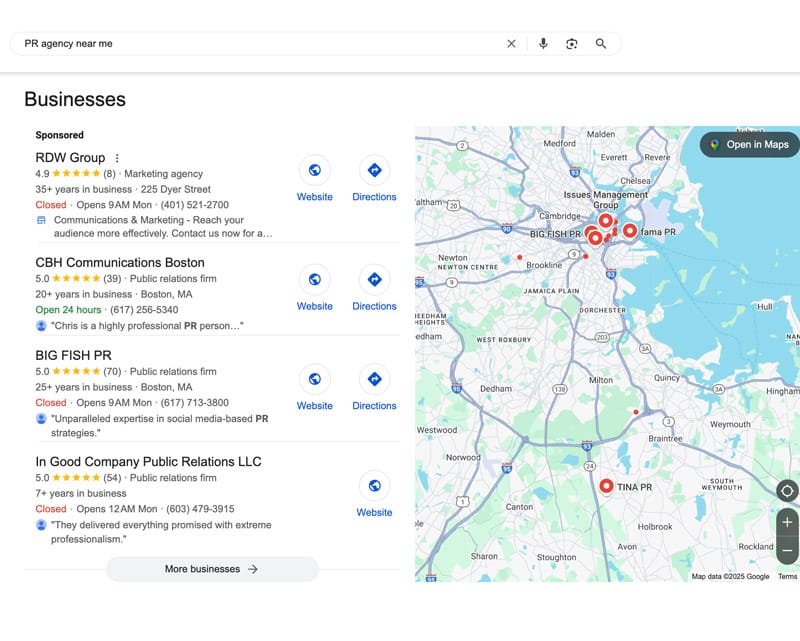
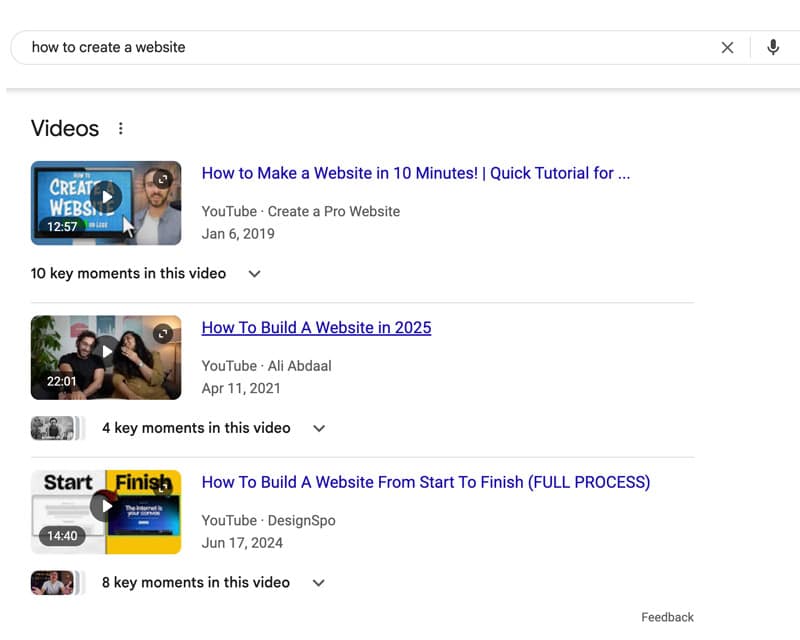

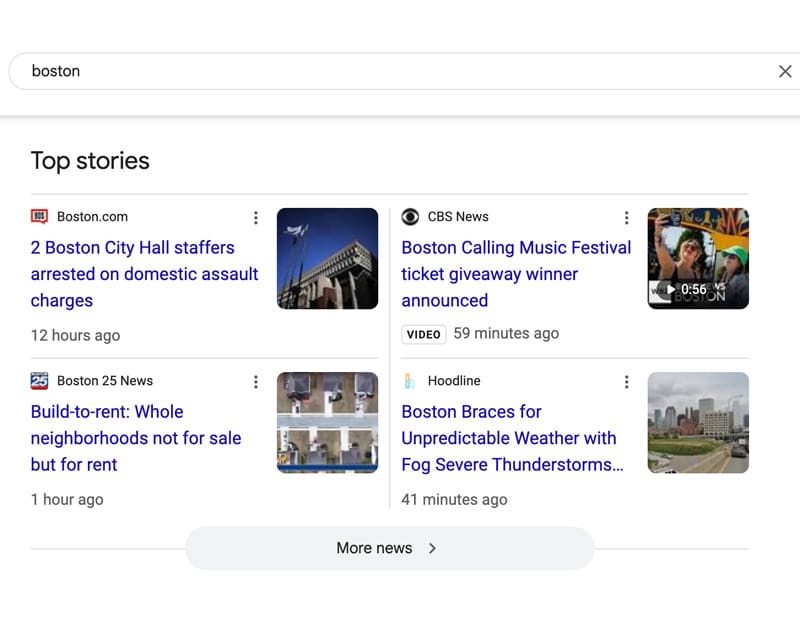
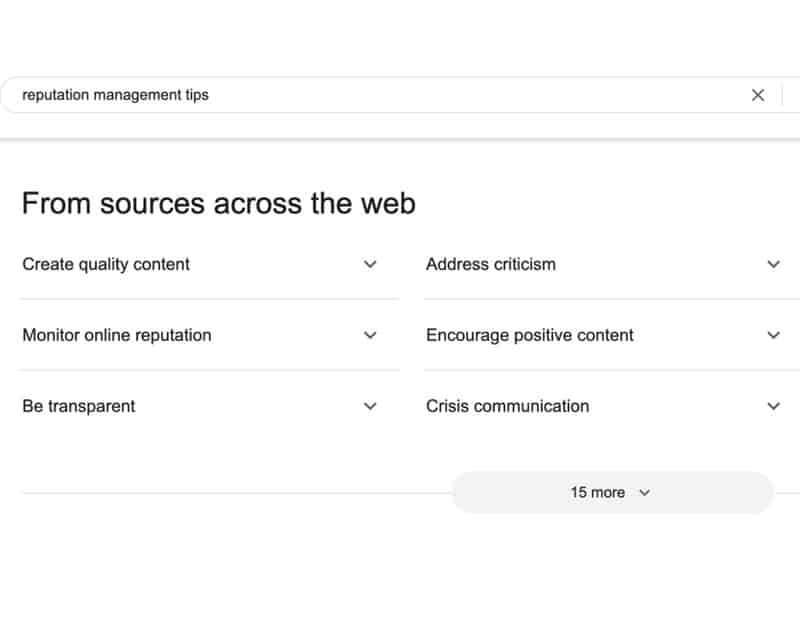
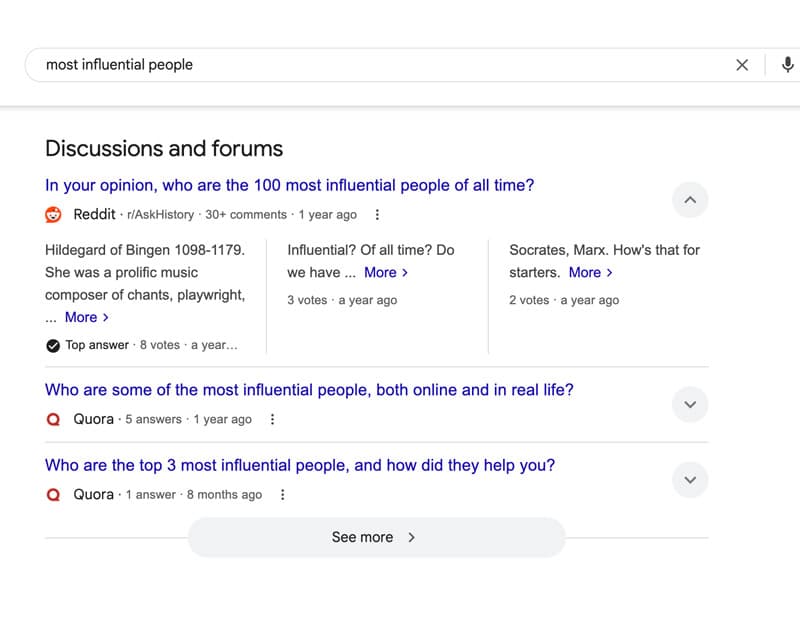
The search engine results page features that appear can depend on what you search online! For instance, a well-known CEO may trigger a knowledge panel, while an independent coffee shop might get featured in a Local Pack.
The more you understand where negative content lives, the better you can target it with positive, SEO-friendly content that pushes it down.
The experts at Reputation911 can help you bury unwanted content appearing in Google search results.
Below are 11 practical strategies you can start using today to bury negative search results.
These steps are designed to help you build a stronger online presence, improve what shows up on Google, and take back control of your reputation.
Owning your own website gives you control over how you appear in search results. It’s one of the most effective ways to push down negative content and promote positive, accurate information about you or your business.
Why It Works:
Tips to Get Started:
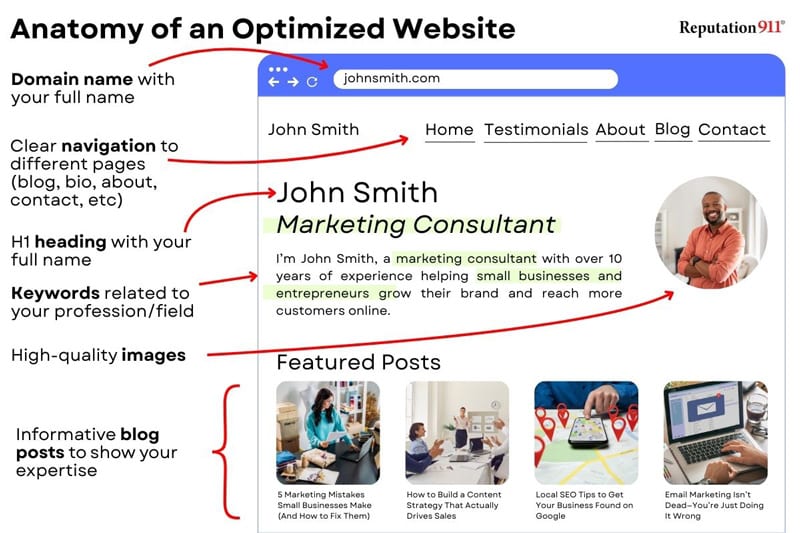
If you don’t own your name as a domain yet, now’s the time to claim it. A well-optimized website is one of the strongest tools you have to bury negative search results long-term.
Blogging gives you a steady stream of fresh content that can rank for your name and help push negative results further down the page.
Google favors content that’s new, in addition to being relevant, and useful.
By blogging regularly, you show that you’re active, engaged, and trustworthy – exactly the kind of content that Google wants to highlight.
What to write about:
Tips to Get Started:
Each new blog post is another opportunity to rank for your name and push unwanted links off the first page.
Linkedin is one of the highest-ranking platforms in Google search results. A well-optimized profile can outrank negative content and make a strong first impression when someone searches for you.
This is your space to highlight your experience, skills, and achievements. A complete, keyword-rich profile signals authority and relevance.
Tips to optimize your LinkedIn profile:
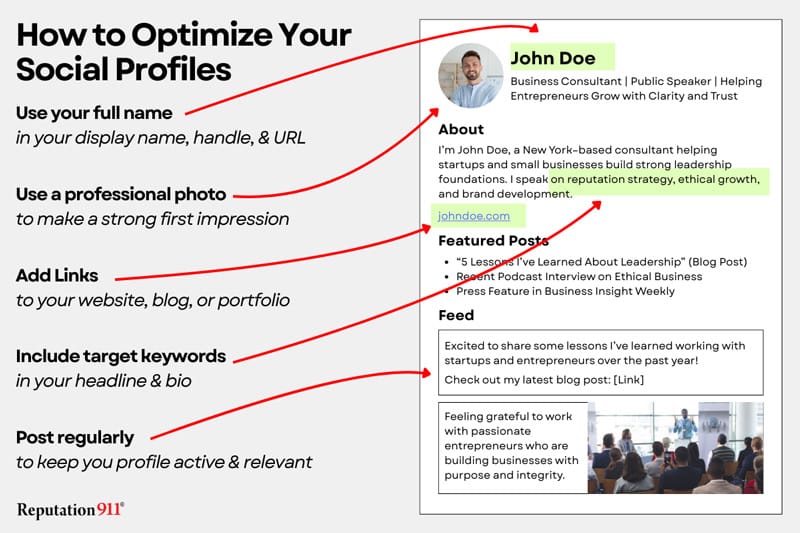
Even if you’re not actively job hunting, LinkedIn gives you control over how your professional identity appears online. It’s one of the easiest wins when it comes to burying negative search results.
Twitter (now X) profiles often rank on the first page of Google – especially if your handle matches your name.
This makes it a valuable tool for pushing down unwanted links and showcasing your polished, professional self.
Tips to optimize your Twitter/X profile:
Even short, casual tweets can help you control the narrative about you online. Stay active and intentional to make the most of this platform.
Podcasts are a powerful way to build authority and create searchable content that highlights your expertise.
Hosting or guesting on podcasts can help you dominate search results with positive, long-form content.
Why it works:
How to get started:
Getting mentioned in the media or featured in press releases can help you bury negative content by earning high-authority links that rank well in search results.
Why it works:
How to get started:

YouTube isn’t just a social media platform – it’s the second largest search engine after Google. And, Google often shows YouTube videos directly in search results.
Starting a channel gives you another way to create positive content that ranks for your name.
How to get started:
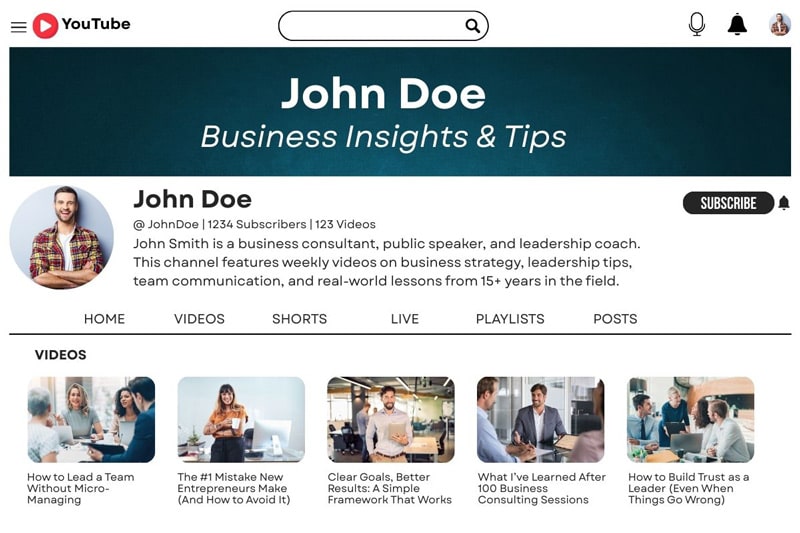
Even short videos can make a big impact. If you’re comfortable on camera, YouTube is a powerful tool to take control of what people see when they search your name.
Writing guest posts for established websites is a smart way to build authority, earn backlinks, and add more positive content tied to your name in search results.
Why it works:
How to get started:

Even one strong guest post on a reputable site can outrank harmful content. The more you publish across trusted platforms, the stronger your online presence becomes.
Publishing articles on platforms like Medium, Substack or Blogger is a smart way to take control of your online narrative.
These platforms are well-indexed by Google and have strong domain authority, which means your articles have a good chance of ranking high in search results – especially when optimized for your name.
If your own website isn’t ranking yet, writing on these platforms gives you a clean, professional-looking space to share high-quality content tied to your name.
How to get started:
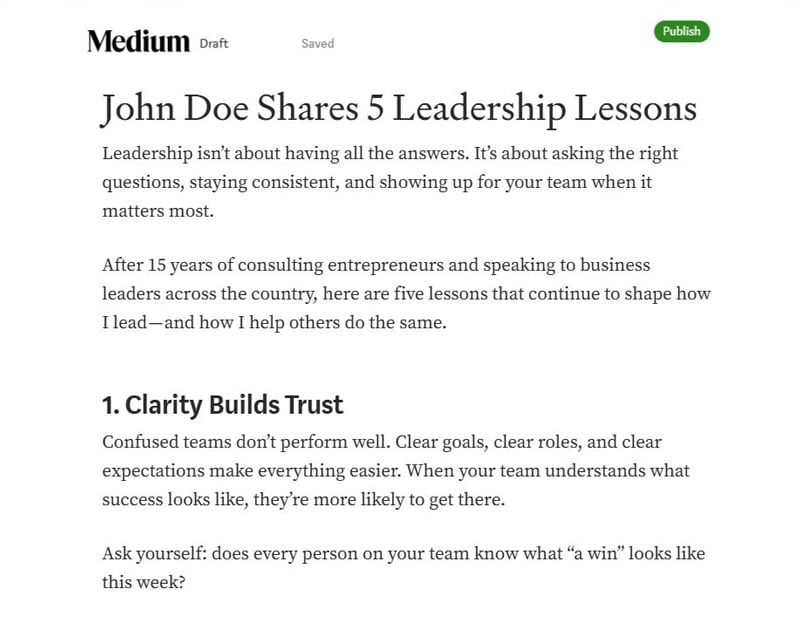
Professional directories and niche platforms are trusted by Google and often rank on the first page for name-based searches.
By building out your profile on platforms tied to your industry, you can create high-authority, SEO-friendly pages that help push negative results down.
These sites give you more control over what people see when they search for your name – especially when your own website or social media haven’t built enough authority yet.
Profession/Industry | Relevant Platforms |
Graphic Designers & Artists | Behance, Dribbble |
Writers | Medium, WritersCafe.org, Substack |
Tech & IT Professionals | GitHub, Stack Overflow |
Marketing & Advertising | HubSpot Community, GrowthHackers |
Healthcare & Medical Professionals | WebMD, Medscape, Doximity |
Fitness & Health Professionals | ClassPass, Mindbody |
Lawyers & Legal Professionals | Avvo, FindLaw, Lawyers.com, Justia |
Real Estate Professionals | Realtor.com, Redfin, Trulia, Zillow |
Educators & Education Professionals | Edutopia |
Service-Based Businesses | HomeAdvisor, Thumbtack |
Restaurant & Hospitality Professionals | Yelp, TripAdvisor, OpenTable |
Construction & Home Services | Thumbtack, Angi, Houzz, HomeAdvisor |
Nonprofit & Mission-Driven Work | GivingWay, Idealist |
How to get started:
Even one or two strong profiles on trusted industry platforms can help bury negative content and establish a more accurate, professional presence online.
If you’re dealing with urgent or high-profile reputation issues, paid ads can give you instant visibility at the top of search results.
Google Ads and social media ads allow you to promote positive content about yourself or your business – like your website, blog posts, media mentions, or even a personal statement – so it shows above organic search results.
How to get started:
Paid ads aren’t a long-term fix, but they can buy time while your SEO efforts work to push down the negative results. Use them strategically to stay visible and in control.
Negative search results don’t have to define you.
With the right mix of content creation, SEO, and strategy, you can take back control of your online presence and push harmful content out of sight.
Key Takeaways:
Whether you’re a professional, a business owner, or someone dealing with personal reputation issues, these tactics can help you rebuild trust and show the world who you really are.
Reputation911 offers professional content removal and suppression services to help clean up your search results and restore your online reputation.